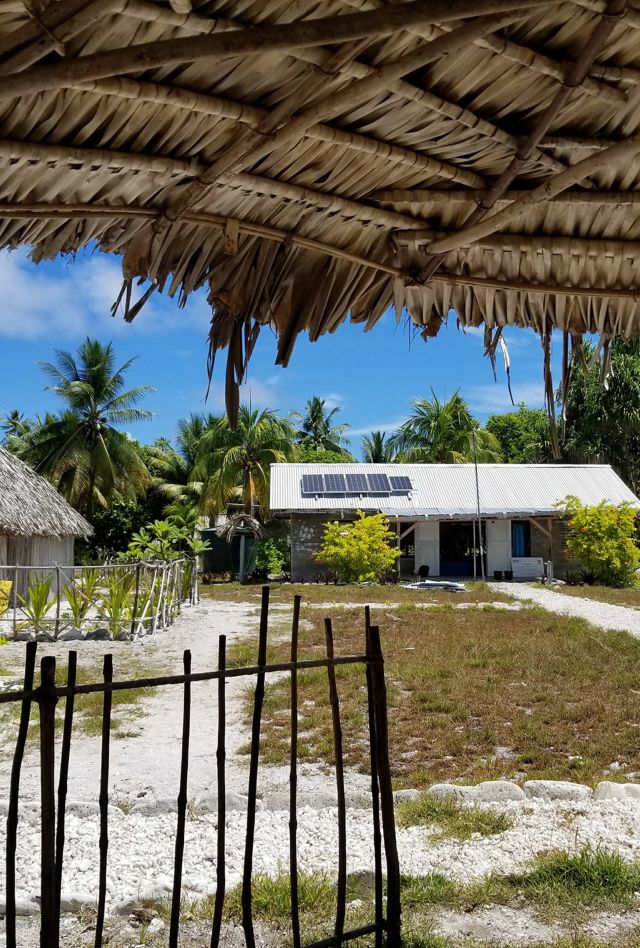Using Tablets in Schools in Kiribati

Problem
Australia’s Department of Foreign Affairs and Trade wanted to know if providing tablets preloaded with content might solve the lack of printed materials in schools.
Kiribati had a scarcity of printed materials in schools, similar to many other low-income countries that struggle to provide sufficient quantities of textbooks and other reading materials to students. To address this need, the Kiribati Education Improvement Program, a Kiribati-Australia partnership, funded by the Australian Government and aimed at improving Kiribati’s education, fielded the Kiribati Tablet Trial. The program provided students in five schools with an information and communication technology (ICT) package comprising 40 tablets for Year 4 students, a docking station to house and charge the tablets, one teacher tablet, and a wireless projector that allowed teachers to show content from their tablets. The program also constructed solar charging stations at each treatment school for charging the equipment. Australia’s Department of Foreign Affairs and Trade wanted to understand if this was an effective solution.
Solution
NORC evaluated the Kiribati Tablet Trial’s impact on students’ English and math skills.
NORC conducted a mixed methods evaluation of the trial using a randomized design to analyze the impact of this program on students’ academic achievement. The program was implemented in four islands near South Tarawa, Kiribati’s most populated island. All 10 schools on these four islands were part of the evaluation. Five schools were assigned to the treatment group and five to the control group.
The trial took place throughout 2018. A total of 202 students were surveyed in February and November of 2018 to assess their English and math capabilities before and after program implementation. Data collection also included a teacher English proficiency assessment and a teacher survey. At endline, we also conducted classroom observations; key informant interviews with school principals and teachers; and focus group discussions with students, parents, and local leaders.
Result
NORC found that the tablet trial had a positive impact on English skills.
NORC found that the program had a positive impact on English skills of 28 percent of a standard deviation. For math, we found some evidence of positive effects, but the results were sensitive to changes in the specifications. The trial was successful in addressing two key conditions that ensure tablet programs, and ICT interventions in general, are successful:
- Tablet content is curated to correspond with the curriculum: previous interventions involving the use of computers in schools found that when content is not aligned with the curriculum, interventions tend to have negligible impacts.
- Teachers incorporate student tablets and other project resources in class activities: the factors that make this integration possible are surely multifaceted, but teacher training, for which attendance was high in this case, most likely played an important role.







